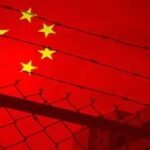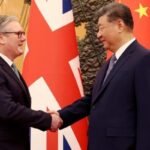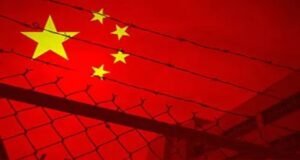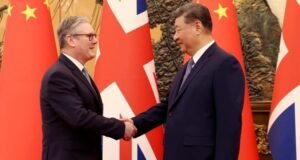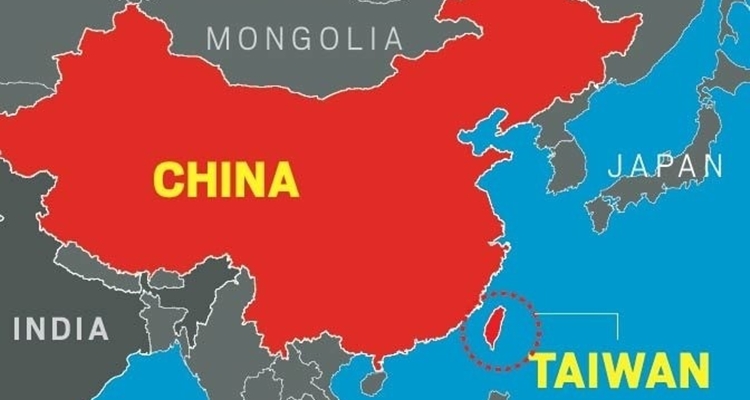
A new report from Global Taiwan Institute examines “PRC Lawfare and Economic Coercion Against Taiwan.”
The mainland’s current lawfare campaign has three main features.
“One is the application of the Anti-Secession Law and other Chinese domestic laws. The second is the PRC’s attempts to establish its ‘One-China Principle’ as a matter of international law by misrepresenting UN General Assembly Resolution 2758. The third is the misuse of law enforcement mechanisms and instruments to contest and expand its territorial jurisdiction over Taiwan.”
Anti-Secession Law
The clearest example of contemporary anti-ROC lawfare, say the authors, is the Chinese Communist Party’s Anti-Secession Law of 2005, “passed out of panic due to the 2004 re-election of then-President Chen Shui-bian….
“Among nine loosely worded articles, the ASL stipulated vague and broadly defined conditions for the justification of military actions in response to so-called ‘secessionist’ activities in Taiwan,” the point of the vagueness being to give the CCP infinite leeway in determining what constitutes a violation.
It is this Anti-Secession Law that has provided a “foundation” or rationalization for the Party’s threat in 2024 to murder secessionist “diehards.”
In a notable evolution and escalation in Chinese lawfare, Beijing is now applying the vague provisions of the Anti-Secession Law as the foundation for new legal measures against Taiwan. In June 2024, based on the Anti-Secession Law and other legal decrees, the PRC promulgated the “Opinions on Punishing the Crimes of Splitting the Country and Inciting Splitting the Country by ‘Taiwan Independence’ Diehards.” The legal guidelines interpret the ASL as justifying criminal punishment, and even the death penalty, to Taiwanese “secessionists” in absentia.
Among the “crimes” announced by the PRC’s codicil:
1. Initiating or establishing organizations, plans, or programs aimed at promoting Taiwanese independence.
2. Attempting to alter Taiwan’s status through legislative means or referenda.
3. Seeking international recognition of Taiwan as an independent entity.
4. Using one’s job or influence, such as in government, education, or media, to misrepresent or falsify the history of Taiwan’s status as part of China.
5. Consistently taking part in or playing a major role in activities that support Taiwanese independence.
The Republic of China has, of course, for decades, since the end of the civil war, been politically independent of the People’s Republic of China and has never been governed by the PRC. By accurately saying so, one “falsifies” the ROC’s status. Which can be a capital offense, depending on how much of a diehard secessionist you prove yourself to be in so speaking; or, rather, how inclined the Party is to kill you if and when it has the opportunity.
The “Opinions on Punishing” document does not “limit legal application by geographical scope of citizenship. Therefore, it could presumably include both ROC citizens and non-ROC citizens.” The document could provide legal “justification” for engaging in the “repatriation of PRC non-citizens to China for arbitrary crimes” and for the “ ‘Hong Kongization’ of Taiwan in terms of the external application of PRC domestic laws and regulations.”
The only purpose of the “Opinions” and other written-down legal-sounding things is propaganda. The People’s Republic of China doesn’t need legal “justifications” to do what it has been doing and will do to Chinese nationals living overseas or to the ROC. But the expectation is that some people will be taken in or intimidated by the ability of China’s foreign ministry spokesman and other propagandists to site such PRC-issued “authorization” of evil policies and actions.
Weaponizing dependencies
The second part of the report, “Economic Measures: A Shift Towards Coercion,” considers such topics as “Targeted Suspension of Preferential Tariff Terms,” “Arbitrary Import Restrictions,” “Arbitrary Regulatory Enforcements Targeting Select Companies,” and “Leveraging Taiwan Businesspeople in the PRC.” All of these are forms of “Weaponizing Dependencies.”
“For over four decades from the start of the PRC’s economic liberalization to the 2000s, Beijing’s economic measures focused primarily on using economic integration to entice Taiwan into political integration. Since the 2000s, however, Beijing has begun to employ a combination of economic enticements and coercion.”

